Editor’s Note: Sandy Tolan (@sandy_tolan) is the author of three books, including “Me and Hank,” about his boyhood hero Hank Aaron, and “The Lemon Tree,” now out in a children’s edition. He is a professor at the Annenberg School for Communication and Journalism at the University of Southern California. The opinions expressed in this commentary are his own. View more opinion at CNN.
In January, as Covid cases spiked in California, refrigerated morgue trucks rolled into Los Angeles, ICUs overflowed, oxygen supplies depleted and full ambulances waited in lines for hours, my wife, Andrea, and I faced a dilemma. The two of us had spent Christmas in Tucson, and planned to drive home to Los Angeles, but our 11-year-old son was in Florida with his biological dad. Andrea had a plane ticket to bring Wyatt back. But flying, especially out of Los Angeles International Airport, seemed too risky. Better to stay at super-clean Airbnbs, order contactless food, and drive across the country to Miami.
And so on January 18 we embarked on the strangest of American road trips, crossing eight states and back, 6,000 miles in 18 days: a surreal and spectacular journey, sure to reveal truths about our battered nation, our resilient people, and ourselves.
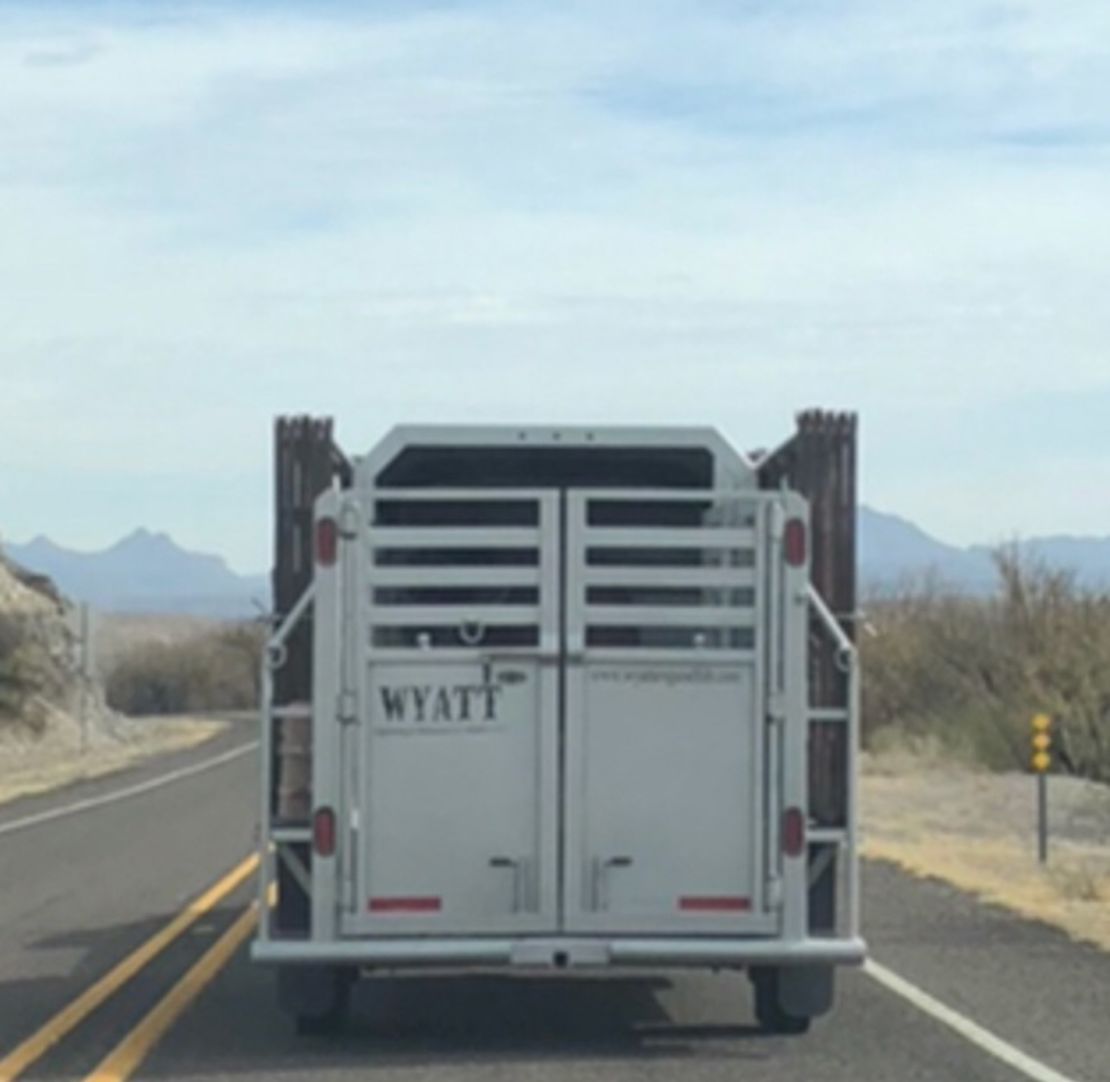
It was quiet and chilly for southern Arizona, maybe 35 degrees, when the eastern sky in the Patagonia hills, just north of the border, began to yellow. A cloudless day, soon to warm; a good day for traveling east into Texas.
We rolled through dun-colored hills dotted with mesquite and scrub oak, dipping into washes, past ranches and brick farmhouses. To pass the time we listened to Barack Obama narrate his story in “A Promised Land,” his voice a reassurance that we were easing into a more “normal” time, caring for each other again.
So close, we could call out to a friend in Mexico
In New Mexico, we climbed a pass through the jagged-toothed Organ Mountains, then plunged into a desert bowl stretching toward Alamogordo, and the birthplace of the atomic bomb. Our destination was gentler — the gypsum dunes of White Sands National Park. A trickle of tourists, only a few wearing masks, rode down the soft sand hills in rented sleds, another sign of life as it was, and could be.
At dusk we reached El Paso. To our right, Cíudad Juárez spread out, vast and twinkling beyond the Rio Grande; so close, it seemed we could call out the window and talk to a friend in Mexico. For years in the Trump era, we’d heard the language of hate: walls and cages, “animals” and “rapists.” Now, it seems, we have a chance to heal the wounds.
We spent our first night in the art-colony town of Marfa. I’d been here 46 years ago, when I was 19. I’d stayed at the Hotel Paisano, swilling down Texas Pride beer with a couple of local teenagers. Back then my room cost me $6 a night. Now suites run nearly 50 times that.
On the second day, we drove south toward Presidio and Big Bend. The Rio Grande wound into view: silent, green, opaque. Here no border wall blocked our view; the Chihuahuan desert remained united by creosote, tamarisk, ocotillo, prickly pear. We stopped, listening for the faint voices carrying across the water, from ranches on the Mexican side.
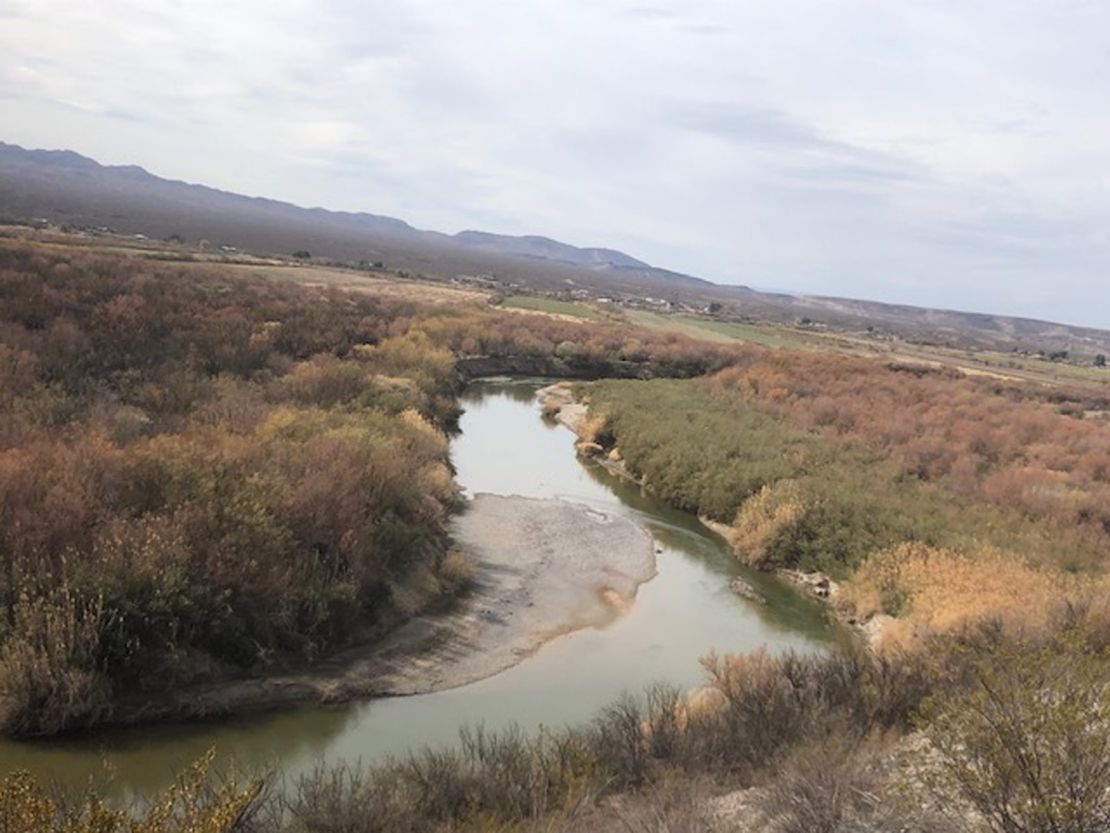
Often the river runs swift and deadly, but at this time of year, it’s slow and languorous.
We descended a low bank. Our little dog, Rascal, waded into the water, lapping up the Rio Grande. Andrea began to record a video for Wyatt. “See, look over there, it’s Mexico! Right there!” she said.
We came upon a pickup truck hauling a horse trailer: “WYATT,” read the sign on the trailer, reminding us of our son, the reason for our drive.
The next morning, at a ghost town with spotty internet, black storm clouds dissipated. From our rock-walled room we watched the presidential inauguration, hearing a brilliant young poet, Amanda Gorman, praise a nation “bruised, but whole, benevolent, but bold, fierce, and free.”
Afterward, we hiked Santa Elena Canyon, through a Rio Grande gorge. Sheer limestone cliffs faced us from the Mexican side, but we were distracted, stepping into the brush every couple of minutes. The trail was packed, and we were in a small minority wearing masks. On the day of the transfer of power, many fellow Americans were making clear their own understanding of bold, fierce and free.
People stare at us in our masks as if we are Martians
On day four, rain pounded our roof as we rode out of Marathon toward San Antonio, wipers on high. A crack appeared in our windshield; we monitored its growth with a piece of Scotch tape. The spray from the semis was intense. A truck began to fishtail just as I passed it. I squeezed the wheel. We’d slept in a trailer the night before, and not well. Our host had urged us to use the bathroom in the trailer park, to save on her water bill — a bizarre request during the pandemic. We ignored it.
I fought fatigue, downing multiple Red Bulls from the cooler. Even the dog sensed the tension. Quietly, Rascal climbed onto Andrea’s lap, then slunk down to the floor at her feet, staring up at me with worried black eyes as I squinted through the thick mist. I shook my head and slapped my face, fighting exhaustion. Finally, the clouds in the eastern sky broke apart.
Tense, exhausting days like this are unavoidable in a quick trip cross country. We focused on staying healthy, not an easy task when so many fellow citizens — in gas stations, quick marts, even takeout restaurants — refused to wear masks. The further east we drove, the greater the disconnect.
Once, at a Subway in Arizona, a customer in front of me ignored the “mandatory mask” sign. When I asked the employee why they didn’t enforce wearing a mask, she just shrugged. At a Texas barbecue joint, as I waited for takeout in my “Green Bay Football” sweatshirt, a man in a line of maskless bar patrons looked over, loudly proclaiming the Packers would lose that coming weekend. (Alas, he was correct.) But, for the most part, we faced little hostility. Sometimes people stared at us as if we were Martians, but to our relief no one confronted us or spewed conspiracy theories. “There seemed to be a mutual desire to keep things gentle,” Andrea observed — a modestly encouraging sign.
For our part, we began donning two masks, hoping our caution was sufficient protection.
Searching for NPR, but finding only preachers and Christian rock
Two days later we rolled into Austin for a socially distanced weekend with my brother Yam and his family. There is nothing more welcoming than rest with family to break up a long road trip.
We sped down a two-lane blacktop into East Texas on day nine. Farmhouses dotted winter fields, reminding Andrea of her native Nebraska. In the late morning under a brooding sky we crossed the last miles of East Texas. Traffic was light and we were skirting the rain. We put on Creedence Clearwater Revival’s “Born on the Bayou.”
The dry washes of West Texas were a fading memory. Bridges forded brown-running creeks and streams. “Jesus heals a broken heart,” a billboard promised. We passed country graveyards, trees standing in swamps, rusted tin-roof sheds. Distant clouds dropped rain on the horizon.
A bridge rose over the Toledo Bend Reservoir. Water lapped at the edge of humble shacks on the Louisiana side. We passed miles of Christmas tree plantations, a topsoil farm, logging trucks, American flags, Trump signs and Confederate flags. On the low end of the FM dial, we searched for NPR, but found only preachers and Christian rock.
We were deep into Trump country — poor country, too. Astride the two-lane roads stood auto parts shops, pawn shops, Family Dollar, Dollar Tree and Dollar General stores. There was hardly a grocery store in sight. Amid the food deserts, a dollar store economy had sprouted, catering to the convenience-store clerks, the elderly Walmart greeters, the jobless and countless others on the margins.
For miles we drove behind a white prison bus filled with men we could barely detect through the darkened, barred windows.
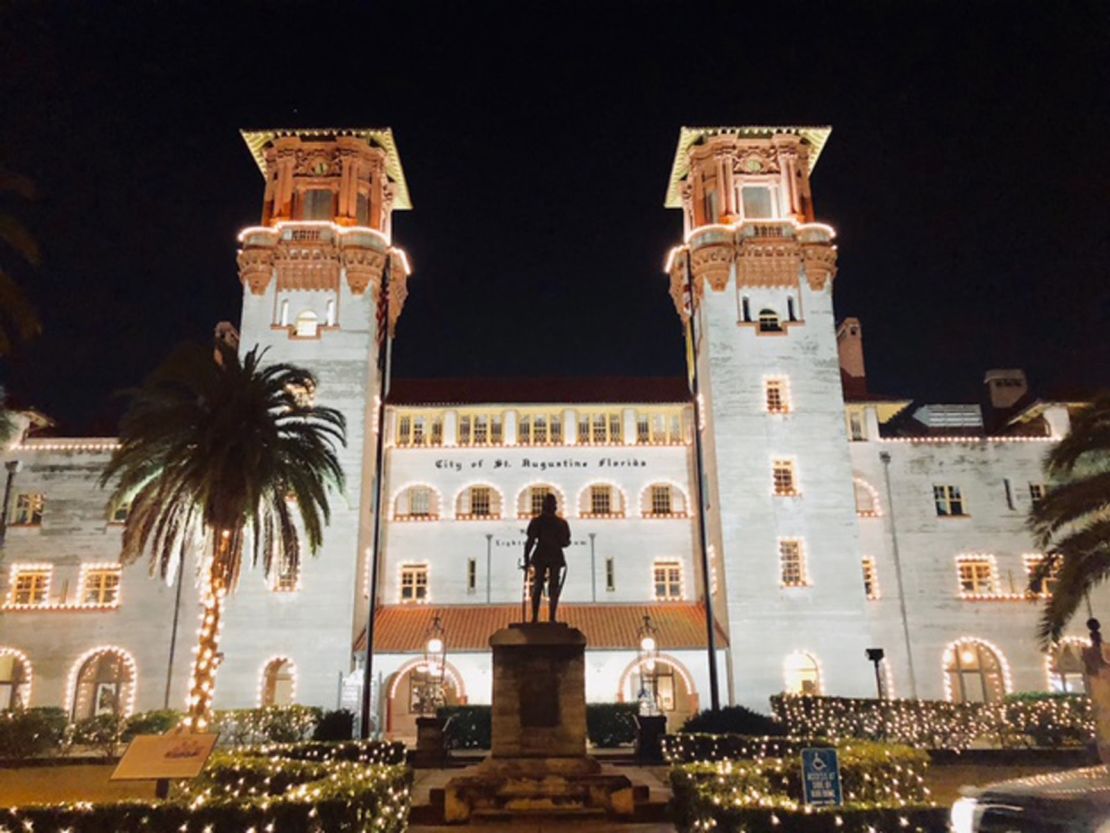
The bus turned off, and we crossed into Mississippi.
By nightfall on day 11, we reached the Atlantic coast of northern Florida: St. Augustine, founded by the Spanish conquistadores in 1565. We walked the wet streets, crossing into the old town, festooned with white lights which shone in the puddles.
We reached the old town square, built in 1573 — nearly 450 years ago, and fully two centuries before the American revolution. “Why did we only learn about the pilgrims?” Andrea asked. We thought about whose history is privileged, whose is diminished. America is so much more than our children are given to believe.
Finally, in glitzy Miami Beach, our reunion
As the light faded, we waited alongside a public park. Now a car turned the corner and came to a stop. Wyatt jumped out. “Mama!” he cried, running to embrace us.
Wyatt hugged his dad goodbye and bounded into our back seat: bright, chattering, laughing, excited. As were we. Tonight, a socially distanced dinner with Andrea’s family, in town by chance.
On the morning of day 12, we stopped at a Cuban breakfast counter by the sea, getting takeout empanadas and croquetas, listening to the easy banter of old men. Andrea’s Cuban abuelita spent the last years of her life here, two blocks away, with other Cuban and Jewish retirees. Andrea remembers asking her Tita why some or her neighbors had numbers on their arms. A generation later come echoes from Wyatt: He asks if we will survive the killer pandemic. He asks why grownups are waving Confederate flags, invading the Capitol building, spewing the N-word, killing police.
Now we drove north along the Florida Turnpike toward the Gulf Coast, Wyatt in the back seat, a new buoyancy to our journey.
The next day I was up at dawn. I picked up breakfast at a nearby store. A group of bearded, maskless young men in camo — deer hunters, I learned — traded easy banter with the masked employees. The hunters eyed me skeptically. Ordinarily, I might engage them, but today I kept my distance. Please don’t get sick, I told myself. Hang on, we’ll be home soon.
At 9 a.m., we took a low-tide walk into the mucky clam flats. Wyatt and Andrea got stuck and returned to shore. I kept walking, thinking myself more capable, then plunged face-first into the muck. “I don’t think anybody’s going to be hiring us to be clam diggers,” Andrea remarked. We hosed off, took showers, and pointed west.
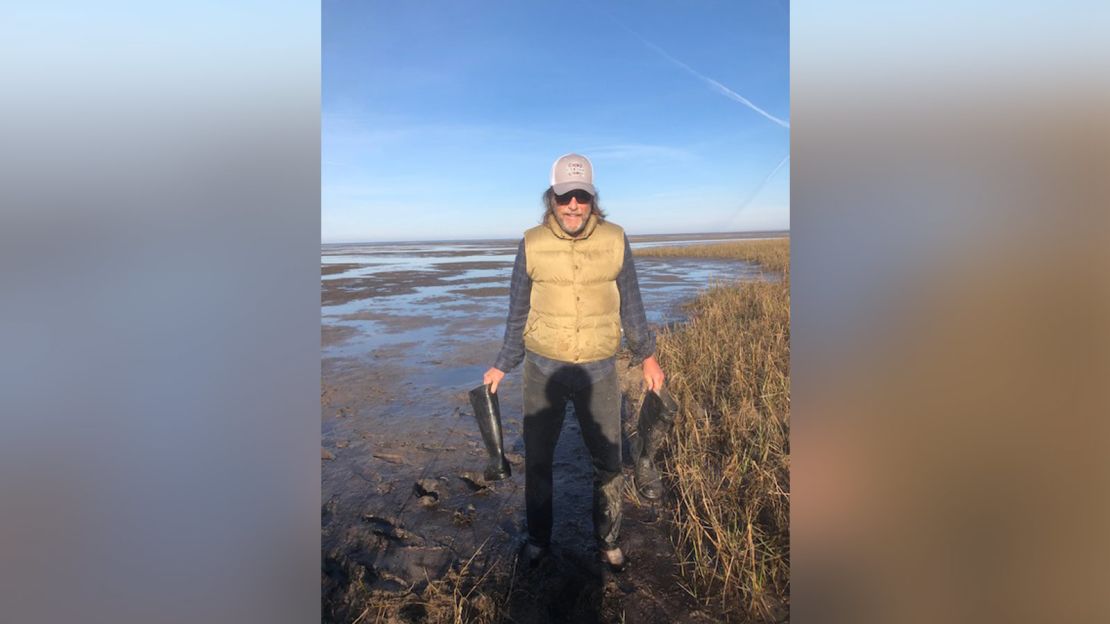
To California.
We picked up the pace, riding the concrete bands past Chattahoochee and Lake Seminole, through Mossy Head and Ponce de Leon, across Pensacola Bay, along the causeway through Mobile Bay, and into Pass Christian on Mississippi’s Gulf Shore. I drove to a seafood restaurant for takeout. Inside it was packed, no one but the servers wearing masks. People smiled at me in my N-95, bemused, almost pitying, as if I were the clueless one. I grabbed the foam takeout boxes and headed back to my family. Five more days.
We crossed the Mississippi in a hard rain, spanned bridges over vast estuaries, passing New Orleans and Baton Rouge, and through the bowels of a fossil fuel economy: gas flares, petroleum tank farms, tankers loading oil for China and the Far East.
‘Don’t leave any of those California ideas around here’
On day 14, we were driving through pale green hills spotted with mesquite and cherry laurel into cutesy, charming Fredericksburg, Texas: lined with coffee shops, candy sellers, Hill Country wineries, barbecue joints, and plenty of places to get schnitzel. And many big red Trump signs, which, nearly two weeks after the inauguration, remained standing. A battered, hand-painted panel truck read cryptically, “Trump Promises Kept.”
Outside of town, a rancher in a Trump hat — our Airbnb host — pointed to our guest cottage on the plain. I went online to teach my USC class while Andrea went out with Wyatt, who was in the white Stetson Andrea had found him in Tombstone, for their adventures with the ranch puppies, goats and donkeys. When they came back, Andrea told me about a conversation she had.
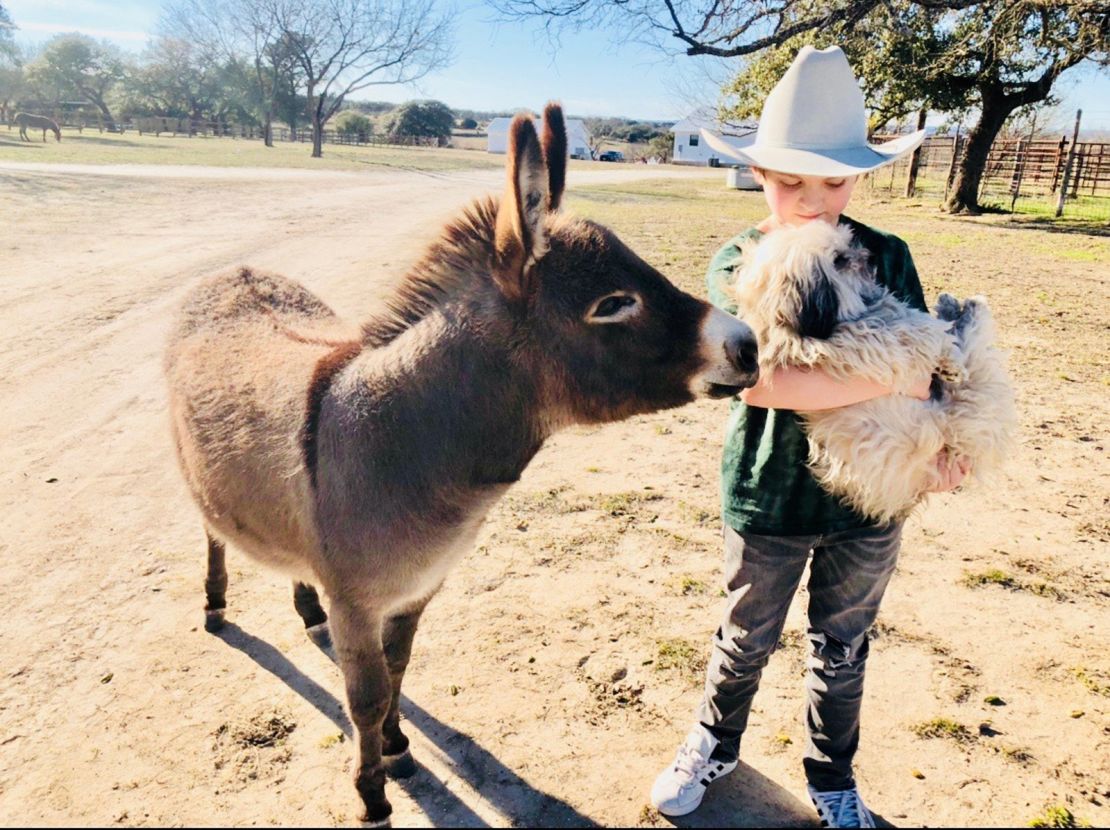
“Where y’all from?” the Trump-hat rancher asked Andrea.
“California, but don’t hold it against us,” Andrea half-joked.
“That’s OK,” he drawled. “Long as you don’t leave any of those California ideas around here.”
On day 15, at a tiny crossroads we ordered warm apple cobbler and bought the local paper. “Rancher indicted for theft of neighbor’s cow,” read the headline. Not quite the same news that was making headlines around the country: A new administration, impeachment, Covid-19 surges.
Getting closer to home
Under a vast blue sky, the rivers gave way to narrow creeks, then dry washes. Down an arrow-straight road, we passed the derricks, pumping jacks and man camps of the West Texas oil patch, then crossed into New Mexico. Tiny yuccas sprouted at the roadsides, reminding us of our beloved Joshua trees of California. Yes, getting closer.
As we drove, Wyatt lost the signal of his fifth-grade Zoom class. He built a pillow fort for Rascal, set his iPad to “Dog TV,” and to relax him, recited Edgar Allan Poe:
“Desolate yet all undaunted, on this desert land enchanted …tell me—tell me, I implore!”
Quoth the Raven “Nevermore.”
Rascal listened politely. Tucson, our last stay before home, was two hours away.
On the morning of day 18 everyone was excited. “We’re going to actually be HOME today!” Wyatt exclaimed as we packed our things in our last Airbnb. Soon, no more strangers’ beds, no more takeout meals, no more checking the tires, oil, coolant, filling the tank, or Googling the NPR frequency in Miami, Mobile, Baton Rouge, Houston, El Paso. And no more damn Red Bull. “I swear I’m never going to have another Red Bull as long as I live,” Andrea said.
We got on the road for one last day. From the Saguaro cactus forest of the Tucson Mountains, west to Picacho Peak, then Phoenix, endless Phoenix. We pushed through and the harsh yellow light of the Mohave Desert at midday. We were a hundred miles from California. Andrea put on John Denver. “Country roads, take me home, to the place I belong …,” we sang together.
Now the exit to Joshua Tree, and snow on the mountain at Idyllwild. So close.
Get our free weekly newsletter
It felt momentous. At the height of a deadly pandemic, we’d traveled 6,000 miles across a bruised and beautiful land, encountering constant reminders of our political divisions, but just as often, signs of renewal. For that, Andrea and I needed only to glance over our shoulders into the back seat. “One more hour!” Wyatt cried, nearly bouncing through his seat belt.
Now, finally, we took California State Route 2 to our exit.
We rolled down the windows, passed the long green expanse of Verdugo Park, turned left into our wooded hills. We were alert, our faces bright, eyes wide. I took it slow. By now, Rascal could smell where we were. He jumped on my lap as I drove, perched his front paws at the base of the driver’s window, mouth open in a smile, tail wagging furiously.
“We’re home, Rascal,” Andrea said.
And so we were.
Home.
